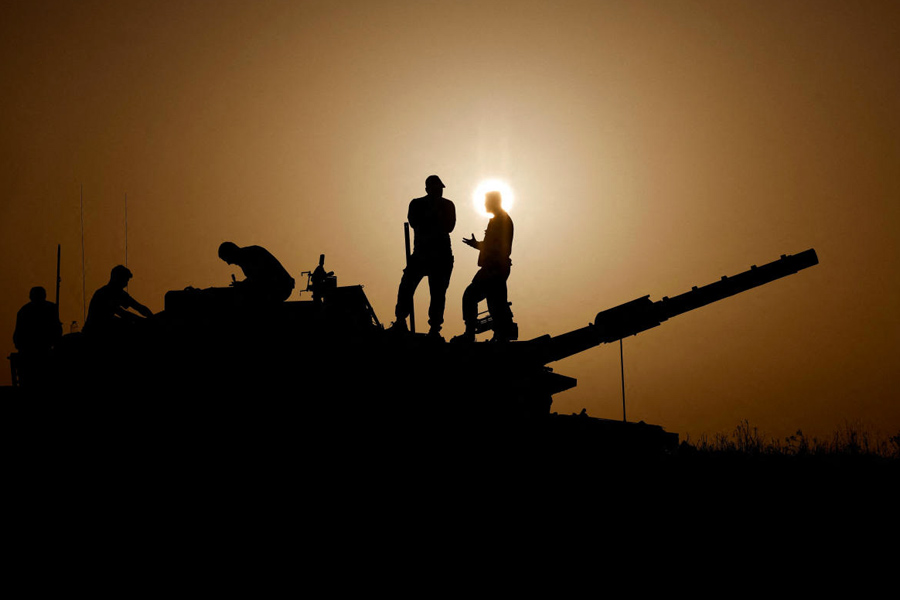The Israeli military said on Sunday it would suspend daytime military operations near a border crossing in southern Gaza every day “until further notice” in order to allow more humanitarian aid to enter the besieged enclave.
Israel said that it would halt military activity daily between 8am and 7pm along the route that connects the Kerem Shalom crossing to Salah al-Din Road in Gaza and then runs north. Kerem Shalom sits at the intersection of Gaza, Egypt and Israel, which controls the gateway.
The Israeli military later clarified that the pause would be limited and that there would be “no cessation of fighting in the southern Gaza Strip”.
“The fighting in Rafah is continuing,” Rear Adm. Daniel Hagari, the Israeli military spokesman, said on social media.
It was not immediately clear what effect the pause would have on the volume of aid entering Gaza, where aid groups for months have warned of a humanitarian crisis. To coincide with the pause, Israel on Sunday said that more than 1,000 aid trucks inspected by the Israeli authorities had crossed into Gaza from Kerem Shalom and were waiting to be unloaded. Distributing that aid, Israeli officials said, would be contingent on relief agencies, on whom they called to pick up the supplies.
The announcement of the pause, made on the Muslim holiday Eid al-Adha, comes amid a flurry of negotiations, mediated by the US, Qatar and Egypt, to reach a cease-fire between Israel and Hamas.
One sticking point in those talks is a disagreement between Hamas and Israel over the permanence of any cessation of hostilities. But by allowing for a limited pause for the delivery of humanitarian aid, Israel signalled that it recognised the magnitude of the crisis in Gaza, where aid agencies say people desperately need food, water, medicines, fuel and other basic supplies.
The United Nations has said that hunger is widespread in the enclave and that more than 50,000 children need to be treated for acute malnutrition. Aid groups have said that the Israeli military’s activity in southern Gaza has made distributing aid nearly impossible.
COGAT, the Israeli agency that oversees policy for the Palestinian territories and that liaises with international relief organisations, said the passage of aid trucks was now being prioritised to get more food into Gaza.
Last month, Israeli troops moved on the southern Gaza city of Rafah and closed the Kerem Shalom border crossing after Hamas launched a deadly rocket attack on Israeli forces in the area. Aid shipments into the territory — already well below levels needed to sustain Gazans — plummeted further. Within days, Israel reopened the crossing at Kerem Shalom, but a second border gate at Rafah, on the Egyptian border, remains closed.
Data compiled by the UN show that the number of aid trucks entering southern Gaza remains well below the levels before the incursion in Rafah.
Israel has described Rafah as the last holdout for Hamas and ordered hundreds of thousands of people who had sought shelter there to flee for what it has described as humanitarian “safe zones” that it would not attack. But officials in Gaza have reported civilian deaths even in some of those zones.
It remains clear, aid groups say, that Gazans need much more assistance.
“Hospitals in ruin, restrictions on humanitarian access and scarce medical supplies and fuel across #Gaza are pushing the health situation beyond crisis level,” the main UN agency for Palestinian refugees, UNRWA, said on social media on Saturday.
New York Times News Service










